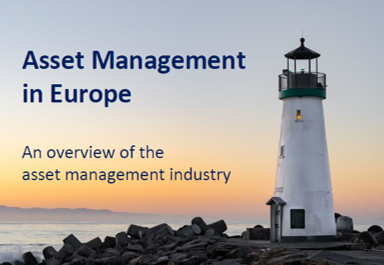EFAMA welcomes the consultation that the European Commission launched on the cross-border distribution of different types of investment funds (AIFs, UCITS, EuVECA/EuSEF, and ELTIF) and the opportunity to respond as to the remaining barriers to marketing funds across the EU single market, as well as the ways to eliminate them. We, also, fully share the goal of the European Commission in seeking further ways to deepen the Single Market for investment funds.
Management Companies
EFAMA has been looking at legislative proposals with a direct impact on asset management companies and services, and closely follows any regulatory developments of critical importance to the sector. In addition to issues related to risk management and financial stability, high up on the agenda of EFAMA members is the framework for a prudential regime for Investment Firms (IFD/R), and related implementing measures directly descending from such framework.
EFAMA is focused on minimising the impact of the rules on asset management companies, in particular those holding a limited MiFID license. Key to the sector is the need for proportionality, especially firms that are not authorised to hold client money/securities, or to deal on their own account.
EFAMA response to the European Commission’s consultation on the barriers to cross-border distribution of funds
EFAMA response to ESMA Call for Evidence on asset segregation
EFAMA welcomes ESMA’s Call for Evidence on asset segregation and custody services as a precious occasion to confirm our previous key messages - as per our response to the previous consultation around Guidelines on asset segregation under the AIFMD of December 2014 – and to clarify our position on new aspects of ESMA’s work.
EFAMA reply to FSB consultation on proposed policy recommendations to address structural vulnerabilities from asset management activities
EFAMA firstly wishes to commend the FSB’s change of focus in the course of 2015, from a proposed assessment methodology intended to identify non-bank, non-insurance globally systemically important financial institutions (NBNI G-SIFIs) to a revised and more objective focus on asset management activities. Although we understand the former framework may be revisited by the FSB once its Recommendations are finalised, we appreciate that certain key characteristics of the asset management industry have been recognised and well reflected in the present consultative document.
Monthly Statistics July 2020 | Investors remained confident in investment outlook in July
The European Fund and Asset Management Association (EFAMA) has today published its latest monthly Investment Fund Industry Fact Sheet, which provides net sales data of UCITS and AIFs for July 2020*.
An ambitious CMU Action Plan that will need strong political support from Member States
Building a Capital Markets Union (CMU) that serves the needs of European citizens and businesses is an ambitious yet, essential - project that requires a long-term political vision, determination and perseverance.
The new CMU Action Plan adopted today by the European Commission, which largely builds on the recommendation of the CMU High-Level Forum, is a milestone in the journey towards the realisation of this ambition for Europe.
International Statistics Q2 2020 | Solid growth of worldwide fund assets in second quarter as global financial markets post strong recovery
The European Fund and Asset Management Association (EFAMA), has today published its latest International Statistical Release describing the trends in worldwide investment fund industry in the second quarter of 2020*.
Worldwide regulated open-ended fund assets increased by 9.8 percent to EUR 51.7 trillion in the second quarter of 2020. Worldwide net cash flow to all funds amounted to EUR 818 billion, compared to EUR 617 billion in the first quarter of 2020.
Asset Management Report 2019
The EFAMA Asset Management in Europe report aims at providing facts and figures to gain a better understanding of the role of the European asset management industry. It takes a different approach from that of the other EFAMA research reports, on two grounds. Firstly, this report does not focus exclusively on investment funds, but it also analyses the assets that are managed by asset managers under the form of discretionary mandates. Secondly, the report focuses on the countries where the investment fund assets are managed rather than on the countries in which the funds are domiciled.

































